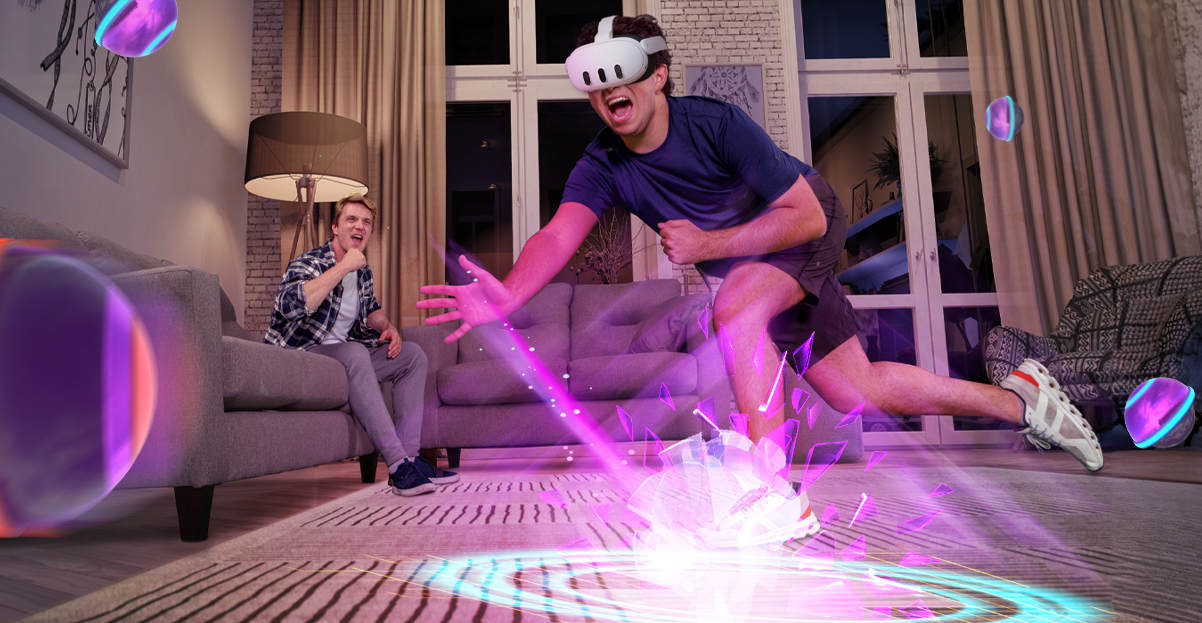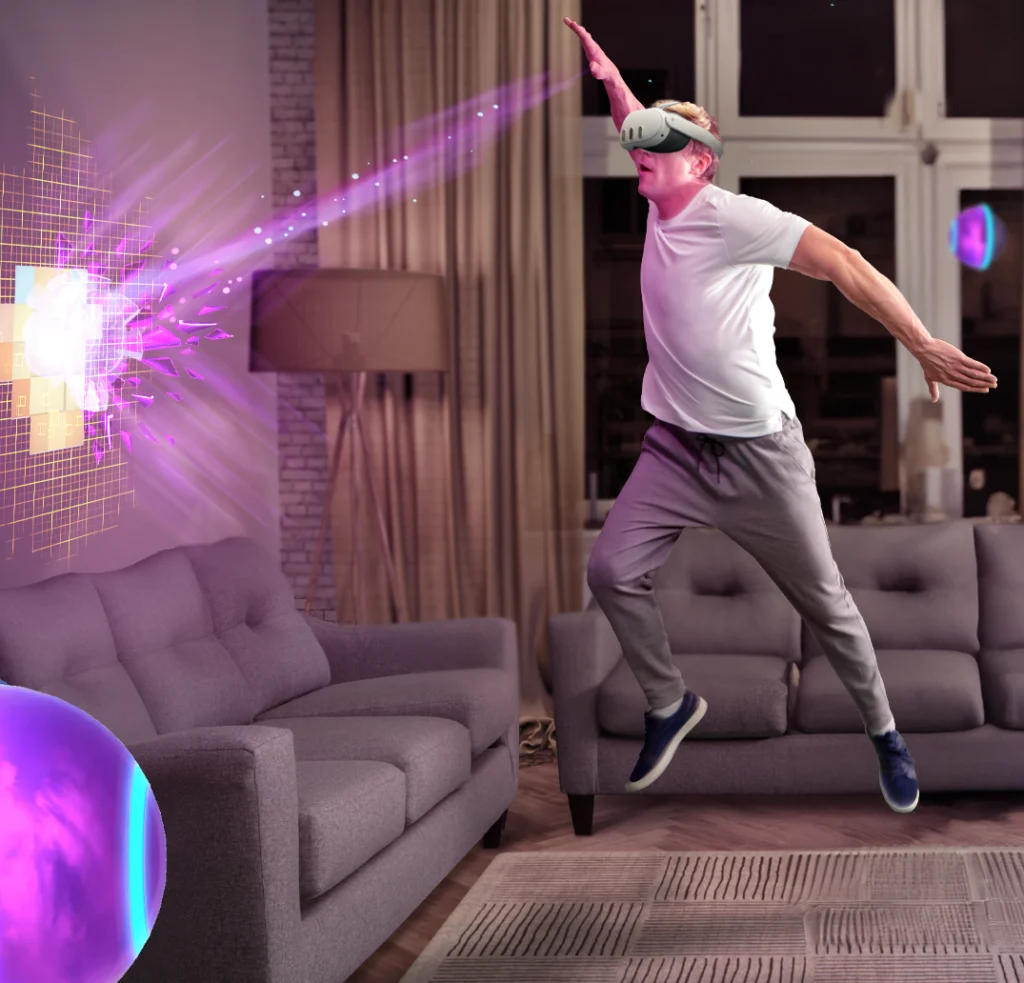FitXR Sees Massive Potential in Mixed Reality Fitness

Sam Cole, CEO of FitXR, predicts that MR and VR technology will soon become commonplace in gyms and fitness facilities
FitXR, a virtual fitness platform featuring a range of workout classes, is leaning into gamified fitness with the launch of Slam, a new immersive mixed reality (MR) game with passthrough capabilities that customize to a user’s surroundings.
The latest offering joins FitXR’s six other multiplayer workout studios, Box, Dance, HIIT, Sculpt, Combat and Zumba, which launched last November in partnership with the iconic dance fitness brand. FitXR showcased Slam on Wednesday during CES 2024.
Available on Meta Quest and Pico XR headsets and using spatial sensing algorithms that can convert any room into a 3D game, Slam users can embark on an adaptable, active gaming journey with two modes — timed or survival.
For those who want complete control over their workout — from difficulty, duration and music — Slam’s timed version is ideal, challenging players to hit as many cues as possible in a selected time. Players who want a truly game-like experience can select survival mode, a challenging experience where they are encouraged to give it their all to hit cues in less time as the game becomes gradually harder.
“The gamification aspect of Slam has allowed us to reach an entirely new group of users who are anxious about exercise, and young people who are addicted to sedentary gaming,” Sam Cole, FitXR founder and CEO, told Athletech News.
MR Fitness Offers Many Possibilities
While he notes extended-reality (XR) fitness has been largely concentrated on cardio, Cole says FitXR is excited about the opportunities that mixed reality, which blends the physical and digital worlds, to other types of fitness like strength and mobility.

Having passthrough capabilities helps break down the barrier between the headset and the user, enhancing the overall experience, explained Cole.
“We know that often people are working out in an environment that’s not as inspiring and would prefer a fully immersive environment,” he said. “But for many, it’s important to still have a view of their surroundings – whether you have your kids in the room while you are dancing Zumba, or if you want to grab your wrist weights and do a Sculpt With Weights class halfway through your FitXR session. Some complex fitness movements are much more comfortable when you can see your feet, and passthrough really comes into its own here.”
Motivating People To Move
Delivering an immersive and gamified fitness experience can prompt busy families into building healthy habits and can make even the most fitness-reluctant strap on a headset and forget they are working out. In many ways, blending fitness and gaming with Slam reflects the broader philosophy of FitXR.
“We’ve always said that we are a fitness studio, not a gaming app – but we’re also not your typical fitness studio,” said Cole. “FitXR is built by a diverse team of people who are passionate about fitness, but not from the typical fitness industry. This is something I’m very proud of, as it allows us to serve such a diverse user base. We’ve been able to bring fitness to countless people who were completely sedentary before working out in VR.”
Although FitXR and its offerings can appeal to busy consumers who struggle to attend traditional fitness classes or hit the gym, Cole says the company’s core mission is to make fitness accessible and enjoyable for everyone.
“FitXR was born from the frustration of an industry that caters only to the select few,” he said. “We are here to reshape the fitness landscape and empower the 80% who have been overlooked, intimidated, and discouraged by traditional fitness. We are a movement for movement.”
The New Normal?
As Cole puts it, MR and VR tech is quickly replacing the smartphone. He predicts a big shift in the industry:
“Just like you see people in the gym with mobiles and headphones, it’s a matter of time before you start seeing people enter the gym with headsets or glasses,” he said. “I believe fitness studios will have to start incorporating the technology because in the very near future, customers are going to be bringing them in of their own accord.”
Courtney Rehfeldt has worked in the broadcasting media industry since 2007 and has freelanced since 2012. Her work has been featured in Age of Awareness, Times Beacon Record, The New York Times, and she has an upcoming piece in Slate. She studied yoga & meditation under Beryl Bender Birch at The Hard & The Soft Yoga Institute. She enjoys hiking, being outdoors, and is an avid reader. Courtney has a BA in Media & Communications studies.



